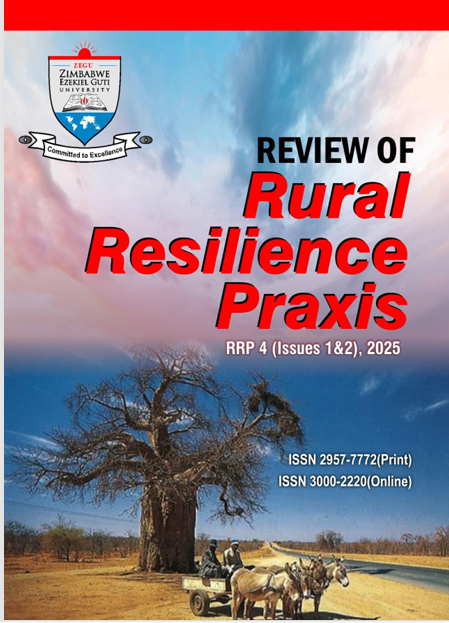Economic Base Analysis for Rural Districts in Zimbabwe: An Old Paradigm a New Question
DOI:
https://doi.org/10.71458/zvvye096Keywords:
local government, rural industrialisation, economic growth, rural poverty, economic development, economyAbstract
The study emphasises the significance of economic base analysis in rural districts of Zimbabwe, highlighting the challenges faced by local authorities in providing essential services. Contrary to traditional approaches that prioritise urban development, economic base analysis advocates for a bottom-up approach, focusing on the inherent potential of rural areas. Central to this perspective is the promotion of rural industrialisation to foster economic growth and alleviate rural poverty. Despite its global relevance, economic base analysis has been underutilised in understanding rural economic development in Zimbabwe, with most projects relying on subjective opinions, rather than empirical analysis. To address this gap, the study employs a comprehensive desk review and literature review, utilising data analysis techniques such as textual analysis. Through case studies, the article illuminates the economic potential of rural areas and provides insights for policy-makers on strategies for rural industrialisation and economic development. By offering a detailed overview of the Economic Base Analysis Theory, historical development, methodological approaches and empirical findings, the study contributes to the discourse on rural development. The conclusion underscores the importance of leveraging economic base analysis to inform policy decisions, with a major recommendation advocating for increased focus on rural industrialisation as a viable option for policy-makers aiming to address rural economic challenges.




